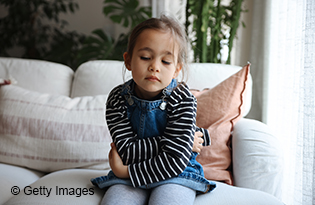Talking about poop
7/22/2024 by Camila C. Cardenas Fernandez, M.D.

Constipation is a common issue in childhood, but it's not something that has to be accepted as normal. Acting early can help prevent complications like anal fissure, stool withholding and fecal incontinence, also known as encopresis.
How often should your child have a bowel movement?
- In the first week of life, most babies should have four or more soft or liquid bowel movements each day.
- During the first 3 months, children may have two or more bowel movements each day, while others may have just one each week.
- By age 2, most children have at least one soft but solid bowel movement each day
Signs of constipation
- Fewer bowel movements than normal.
- Hard or larger-than-normal bowel movements.
- Pain during bowel movements.
- Arching their back and crying during infancy.
- Avoidance behaviors like doing a "dance" or hiding when they feel a bowel movement coming — especially during potty training or starting school.
- Small amounts of bowel movement leakage into their underwear if they have been toilet trained.
Preventing constipation
The key to avoiding constipation includes simple steps related to diet, toilet training and toileting behaviors. Timely guidance in these areas can make a significant difference.
For mild or brief constipation, consider these steps:
- Increase fruits, vegetables, cereal and other fiber-rich foods in your child's diet.
- Offer prune juice, apple juice or pear juice.
- Ensure your child drinks at least 32 ounces of water and non-milk drinks daily (for children older than 2 years).
- Temporarily avoid dairy products like milk, yogurt, cheese and ice cream.
- Encourage your child to sit on the toilet for 5 or 10 minutes after meals, providing rewards for cooperation.
- Consider pausing potty training if currently in progress.
Treating constipation
Treatment for constipation depends on the child's age and how long they have been experiencing symptoms.
Treatment may include:
- Education. Understanding the factors contributing to constipation.
- Dietary changes. Adjusting the child's diet to include more fiber and fluids.
- Behavior changes. Encouraging healthy toilet habits and routines.
- Pharmacotherapy. In some cases, medications may be recommended, either alone or in combination with other measures
When to seek medical attention:
- Children younger than 4 months who are experiencing constipation.
- Constipation is occurring frequently.
- Following the above steps for 24 hours has not resulted in a bowel movement.
- You noticed blood in the bowel movement, diaper or underwear.
- Your child is in significant pain.
Understanding
Remember, addressing constipation early can lead to better outcomes and a happier, healthier child. Remember, each child is unique. If you have concerns or questions, do not hesitate to reach out to your primary care clinician — they can provide personalized advice based on your child's specific needs.
More information
You can find more information in the following links:
- Constipation - Symptoms and causes - Mayo Clinic
- Constipation - Diagnosis and treatment - Mayo Clinic
- Constipation - Care at Mayo Clinic - Mayo Clinic
Camila C. Cardenas Fernandez, M.D., is a Pediatric and Adolescent Medicine resident in Rochester, Minnesota. After residency, she will complete her fellowship at Boston Children’s Hospital in Pediatric Gastroenterology and Hepatology.
